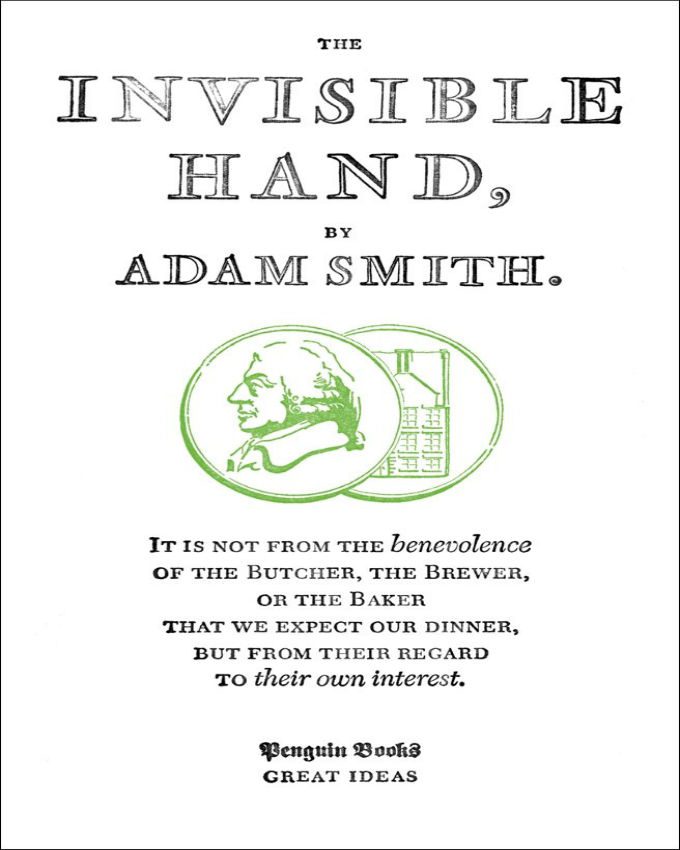


Suppose our social planner tried to choose an efficient allocation of resources on his own, instead of relying on market forces.Ervin László (1996) The systems view of the world: A holistic vision for our time p.When the systemic vision inspires the theories of social science, the values of competition are mitigated by those of cooperation, and the emphasis on individualistic work ethos is tempered with a tolerance of diversity and of experimentation with institutions and practices that foster man-man and man- nature adaptation and harmony. When the classical worldview was applied to social science, the dominant notions turned out to be struggle for survival, the profit of the individual, with at best an assumed automatic coincidence of individual and societal good (through Adam Smith's "invisible hand").Friedrich Hayek, The Fatal Conceit, Ch.In our economic activities we do not know the needs which we satisfy nor the sources of the things which we get. We are led - for example by the pricing system in market exchange - to do things by circumstances of which we are largely unaware and which produce results that we do not intend. His `invisible hand' had perhaps better have been described as an invisible or unsurveyable pattern. Adam Smith was the first to perceive that we have stumbled upon methods of ordering human economic cooperation that exceed the limits of our knowledge and perception.David Harvey (2006) The Limits To Capital.The net effect of increasing scale, centralization of capital, vertical integration and diversification within the corporate form of enterprise has been to replace the 'invisible hand' of the market by the 'visible hand' of the managers.Samuel Fielden, Statement to the Court (1886).A man is of no use to this world, of no use to society or the neighborhood in which he lives, who has no other object in view than making a fortune for himself and his family, little caring what becomes of those around him.

Here Chydenius could be said to describe the invisible hand eleven years before Adam Smith wrote The Wealth of Nations. Anders Chydenius The National Gain, §5, 1765.that every individual spontaneously tries to find the place and the trade in which he can best increase National gain, if laws do not prevent him from doing so. Understanding Capitalism: Competition, Command, and Change (3rd ed., 2005), p. Samuel Bowles, Richard Edwards, and Frank Roosevelt.Early in his studies Coase noted the similarity between the hierarchical organization of capitalist firms, with their reliance on command relations, and the then-existing system of centralized economic planning in the Communist countries, where production was carried out in accordance with orders from higher authorities and where market competition played little role. The everyday fact that employers exercise power over their employees - not news to most employees - had been a central theme in Marx's economics, but it was (and generally continues to be) overlooked by most neoclassical economists. Writers after Coase have referred to the authority structure of the firm as a "visible hand" that works in combination with Smith's invisible hand.Animal Spirits: How Human Psychology Drives the Economy, and Why It Matters for Global Capitalism, 2009, Preface Just as Adam Smith’s invisible hand is the keynote of classical economics, Keynes’ animal spirits are the keynote to a different view of the economy - a view that explains the underlying instabilities of capitalism. To understand the economy then is to comprehend how it is driven by the animal spirits.In economics, the invisible hand is a metaphor used by Adam Smith to describe unintended social benefits resulting from individual actions.ĬONTENT : A - F, G - L, M - R, S - Z, See also, External links Quotes Quotes are arranged alphabetically by author A - F A man is of no use to this world, of no use to society or the neighborhood in which he lives, who has no other object in view than making a fortune for himself and his family, little caring what becomes of those around him.


 0 kommentar(er)
0 kommentar(er)
